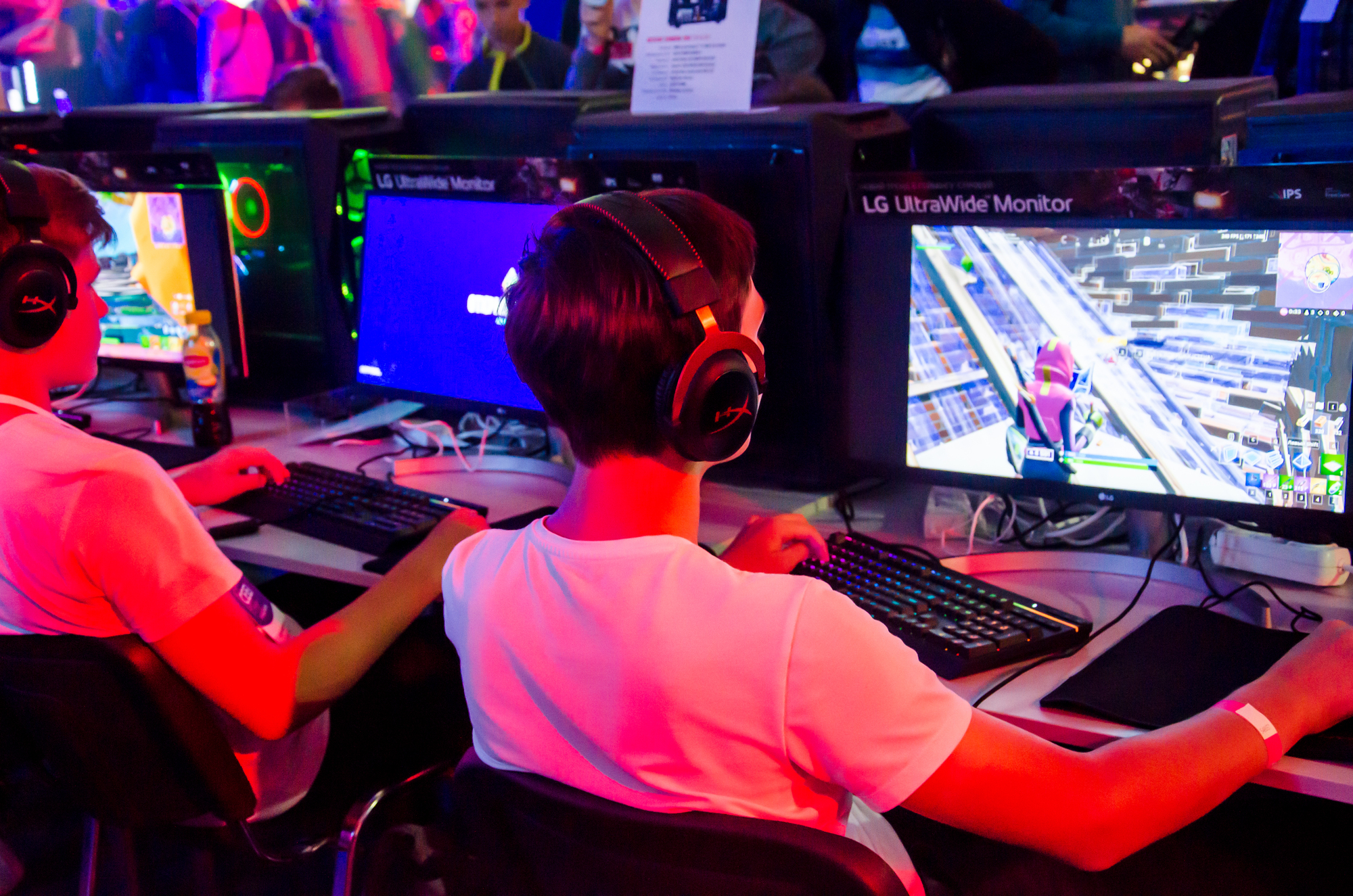Artificial intelligence is revolutionizing the gaming industry, ushering in a new era of interactive entertainment. AI-driven technologies are transforming how games are developed, played, and experienced. These advancements are creating more immersive, responsive, and personalized gaming environments that adapt to individual players in real-time.
The integration of AI in gaming extends beyond improved graphics and gameplay mechanics. It’s enabling the creation of dynamic virtual worlds populated by non-player characters with distinct personalities and behaviors. AI algorithms are also enhancing game narratives, generating unique storylines and dialogues that change based on player actions and choices.
Virtual and augmented reality technologies are benefiting from AI advancements, offering increasingly realistic and interactive experiences. As AI continues to evolve, it promises to blur the lines between virtual and physical worlds, opening up new possibilities for innovative gameplay and storytelling in the gaming industry.
The Evolution of AI in Gaming
Artificial intelligence has profoundly transformed the gaming landscape over the past decades. From basic computer opponents to complex, adaptive systems, AI has reshaped how games are created and experienced.
Historical Milestones
Early AI in gaming focused on creating challenging opponents for players. In 1997, IBM’s Deep Blue defeated world chess champion Garry Kasparov, marking a significant moment for AI in game-playing. The 2000s saw AI used to generate game content and improve non-player character (NPC) behaviors.
By the 2010s, AI began enhancing procedural generation techniques, creating vast and varied game worlds. Games like No Man’s Sky used AI to generate entire planets and ecosystems. This period also saw the rise of AI-driven narrative systems, allowing for more dynamic storytelling experiences.
Key Technological Advancements
Machine learning and neural networks have been pivotal in advancing AI for games. These technologies enable more realistic character behaviors and improved decision-making processes. Natural language processing has enhanced in-game dialogue systems, allowing for more natural interactions between players and virtual characters.
AI algorithms now power sophisticated physics simulations, creating more realistic game environments. Computer vision techniques have improved graphics and animation, leading to more lifelike characters and settings. Reinforcement learning has been applied to create AI agents that can learn and adapt to player strategies in real-time.
Influence on Game Development
AI tools have streamlined many aspects of game development. Automated testing systems powered by AI can quickly identify bugs and balance issues, saving developers time and resources. AI-assisted design tools help creators generate art assets, level layouts, and even music, speeding up production processes.
AI has also enabled new gameplay mechanics and genres. Games now feature AI companions that learn from player actions and provide personalized assistance. Some titles use AI to create infinite variations of levels or quests, extending replay value. Developers are exploring AI-driven narrative engines that can generate unique stories for each playthrough, pushing the boundaries of interactive storytelling.
AI’s Role in Enhancing Gameplay
AI technologies are revolutionizing gaming experiences by creating more immersive and responsive environments. These advancements are reshaping how players interact with virtual worlds and characters.
Procedural Content and Dynamic Worlds
AI-powered procedural content generation creates vast, diverse game environments. Algorithms generate unique landscapes, buildings, and objects, reducing development time and costs. This technology enables games to offer fresh experiences with each playthrough.
Dynamic world systems react to player actions in real-time. Weather patterns shift, ecosystems evolve, and NPCs adjust their routines based on in-game events. These responsive environments make game worlds feel alive and unpredictable.
AI also enhances level design by analyzing player behavior and preferences. It can generate custom challenges tailored to individual skill levels, keeping gameplay engaging and balanced.
Personalized Player Experiences
AI adapts gameplay difficulty in real-time based on player performance. This dynamic adjustment keeps challenges appropriate for each individual, preventing frustration or boredom.
Machine learning algorithms analyze player choices and playstyles to customize in-game content. This can include personalized quests, item drops, or NPC interactions that align with a player’s preferences.
AI-driven recommendation systems suggest new games or in-game activities based on player history. These personalized suggestions help players discover content they’re likely to enjoy.
AI-Driven Narrative and Characters
Advanced natural language processing enables more realistic and engaging dialogue with NPCs. Characters can engage in contextual conversations, remember past interactions, and display emotion.
AI generates dynamic storylines that adapt to player choices. This creates branching narratives with meaningful consequences, increasing replay value and player agency.
Intelligent NPCs exhibit more complex behaviors and decision-making. They can form alliances, hold grudges, or pursue their own goals independent of the player. This creates a more living, breathing game world.
AI can also generate voice acting and facial animations for characters, reducing production costs and enabling more extensive dialogue options.
Ethical Considerations and Player Trust
AI-driven gaming raises important questions about fairness, privacy, and player well-being. Game developers must navigate these challenges to create positive experiences for all users.
Addressing Bias and Fairness
AI systems can perpetuate or amplify biases present in training data. This may lead to unfair outcomes for certain player groups. Game developers should audit AI models for bias and test extensively across diverse player populations. Representation matters in character design, storylines, and game mechanics.
Inclusive gaming requires considering different cultural perspectives and abilities. AI can help create adaptive experiences for players with disabilities. Dynamic difficulty adjustment based on skill level, rather than demographic factors, promotes fairer competition.
Regular monitoring and updates to AI systems help catch and correct emerging biases. Player feedback channels allow communities to flag concerns.
Data Privacy and Security
AI-powered analytics collect vast amounts of player data to personalize experiences. This raises privacy concerns about data collection, storage, and usage. Game companies must be transparent about data practices and give players control over their information.
Strong data protection measures are essential to prevent breaches. Encryption, access controls, and anonymization help safeguard sensitive player data. AI-based anti-cheat systems should balance game integrity with player privacy.
Clear opt-in policies for data collection build trust. Players should know what data is gathered and how it’s used to improve their experience. Giving users the ability to delete their data upholds privacy rights.
Immersive Experiences and the Future Horizon
AI-driven interactive media is pushing the boundaries of gaming and entertainment. The integration of advanced technologies is creating more engaging and lifelike experiences for players worldwide.
Virtual Worlds and Reality Integration
Virtual reality (VR) and augmented reality (AR) are transforming gaming landscapes. These technologies, enhanced by AI, create highly immersive environments that blur the line between digital and physical realms. VR headsets transport players into fully realized 3D worlds, while AR overlays digital elements onto the real world.
AI algorithms generate detailed, responsive environments that react to player actions in real-time. This level of interactivity makes virtual worlds feel more alive and dynamic. As hardware improves, these experiences will become increasingly realistic and accessible to a broader audience.
The global video game market is rapidly adopting these technologies, with major companies investing heavily in VR and AR development.
Evolving Entertainment Ecosystems
AI is reshaping how games are created, played, and experienced. Adaptive gameplay mechanics adjust difficulty and challenges based on individual player skills and preferences. This personalization keeps players engaged and provides a tailored experience for each user.
Natural language processing allows for more sophisticated interactions with non-player characters, creating deeper, more meaningful in-game relationships. AI-driven storytelling adapts plot elements and dialogue in response to player choices, resulting in unique narratives for each playthrough.
These advancements extend beyond gaming, influencing other forms of media like interactive movies and music experiences. The lines between different entertainment mediums are becoming increasingly blurred.
Anticipating the Next Breakthrough
The future of AI in gaming holds exciting possibilities. Researchers are exploring brain-computer interfaces that could allow direct mental control of game elements. This technology could revolutionize how players interact with virtual environments.
AI-powered procedural generation might create infinite, unique game worlds and quests, providing endless content for players to explore. Improved natural language processing could enable fully conversational interactions with game characters, making storytelling more immersive and responsive.
As AI continues to advance, we can expect more sophisticated simulations, smarter virtual assistants, and increasingly lifelike digital actors in games and other interactive media.











